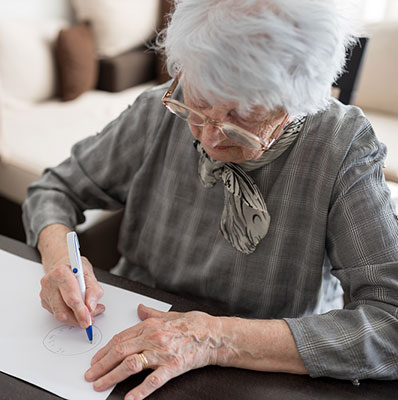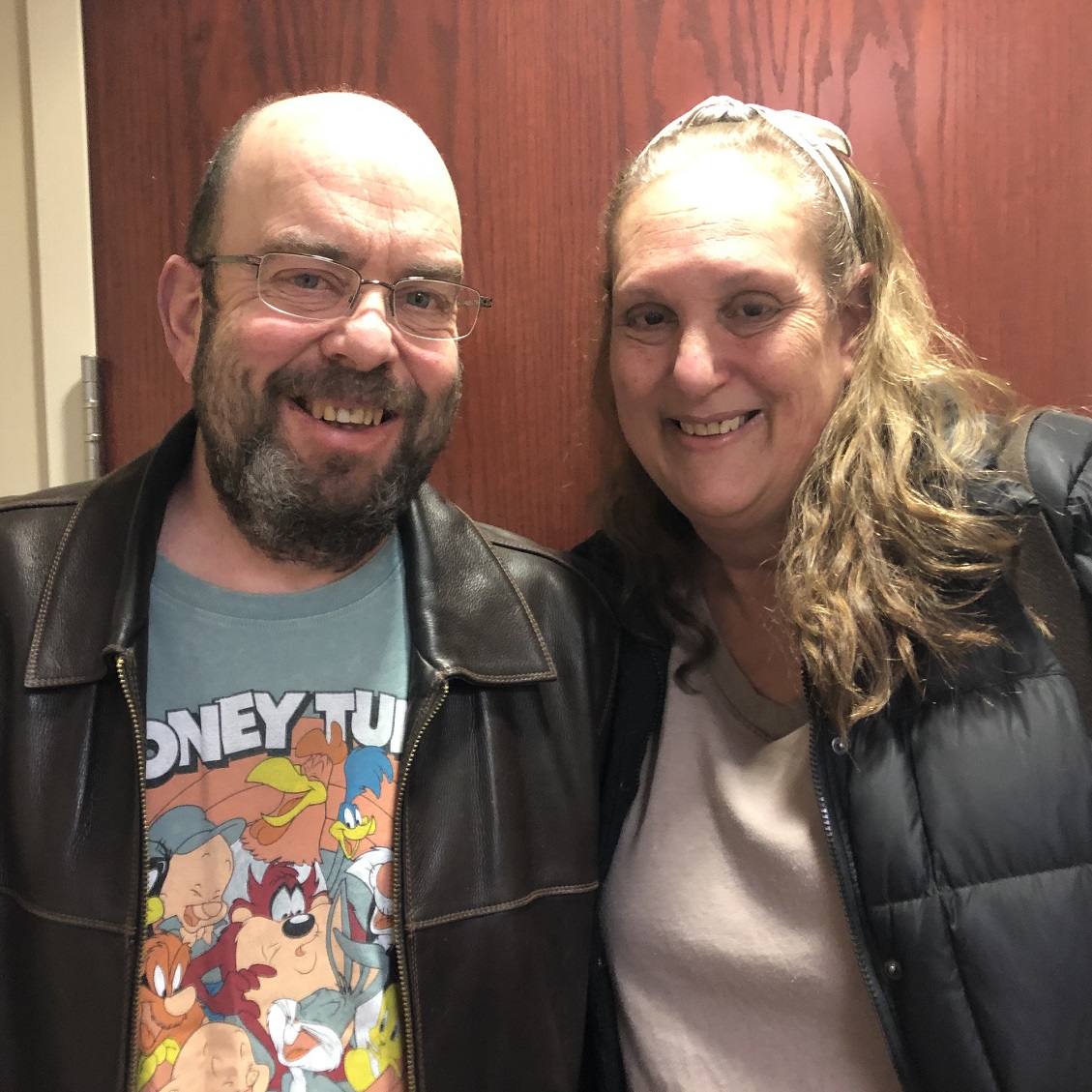14 Ways to Help Someone With Alzheimer’s

July 12, 2023
When a loved one has Alzheimer’s disease, you may not know what to do. While there’s no cure and few treatments, you can still help improve their life.
Alzheimer’s and other forms of dementia cause memory loss, cognition problems and behavior changes. You can’t control those factors, but you may improve your relative’s quality of life.
“Caring for someone with Alzheimer’s can be challenging, but kindness and patience helps,” memory and cognitive disorders neurologist, Reena Gottesman, M.D. says. “It’s the same person you’ve always known and loved, so treat them accordingly.”
There are many ways to provide love and comfort to a relative with Alzheimer’s. Read on to find out what you may do.
Prepare to be an Alzheimer’s caregiver
Caring for someone with Alzheimer’s or dementia requires some planning. To get started:
- Be involved. When your relative is diagnosed, go to doctor appointments to learn about your role. Family care partners help to keep people with Alzheimer’s safe and secure.
“The doctor may suggest daily routines or activities that are comforting,” Dr. Gottesman says. “They may also recommend local support services to help you manage your relative’s care.”
- Educate yourself. Read about Alzheimer’s, so that you know what to expect as the disease progresses. Join support groups to learn about local resources that you may need.
“Family caregivers often get ideas from one another, when caring for loved ones,” Dr. Gottesman. “You don’t need to reinvent the wheel, if others you know have helpful strategies.”
How to Help Your Loved One with Alzheimer’s
The most significant ways to help ensure that your relative is healthy and safe:
- Make their home a safe living space. Walk around the house to look for potential dangers. Throw rugs can be trip hazards, and alcohol or guns should be locked away.
- Establish a daily routine. People with Alzheimer’s or dementia may find comfort when activities are regularly scheduled. Help them to awaken, dress, shower, eat and do other activities at set times.
- Allow your loved one to continue to do things for themselves. People with early-stage Alzheimer’s or dementia can do many tasks independently. Encouraging them to maintain their independence may help them feel more useful or fulfilled.
- Expect things to take longer. Your loved one with Alzheimer’s may move more slowly while going about their activities. When you must be somewhere, build in buffer time, so you’ll be less stressed.
- Be compassionate instead of angry. You may feel frustrated when your relative forgets things, misunderstands you or imagines things. Remember, Alzheimer’s caused these changes, so you should be patient and kind, not annoyed.
- Maintain conversations. Your loved one may not remember everything, but they still need emotional connections. Focus on their feelings, not facts they’ve forgotten, to be a reassuring presence.
- Keep things simple. Do effortless activities together, like folding laundry or listening to music. Try not to argue, and use humor to diffuse situations when you can.
How to Help Yourself While Caring for Someone with Alzheimer’s
You’ll be a better care partner – and you’ll feel less stressed – by prioritizing your health. Don’t care for your loved one without remembering to care for yourself!
Try these ideas:
- Prioritize your basic needs. Make sure that you sleep enough, eat healthily and exercise on a daily basis. This should help you be at your best, to support your loved one.
- Take breaks from caregiving. Read books or engage in hobbies when you have free moments. Find ways to keep being you, while you’re managing your loved one’s health.
- Make time to connect with friends. Whether you call or meet in person, talk about things that matter to you. Regular contact with friends should help you feel less lonely, isolated or overwhelmed.
- Admit that you can’t do it all. Ask for help from family or friends for certain care partnering tasks. If you aren’t used to leaning on others, now is the time to begin.
- Hire help when you need it. As your loved one’s Alzheimer’s progresses, they may need nurses or home aides. Involving professionals in your loved one’s care may reduce your stress load.
Next Steps & Resources:
- Meet our source: Reena Gottesman, M.D.
- To make an appointment with Dr. Gottesman, or a doctor near you, call 800-822-8905 or visit our website.
The material provided through HealthU is intended to be used as general information only and should not replace the advice of your physician. Always consult your physician for individual care.





